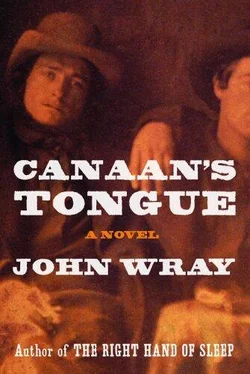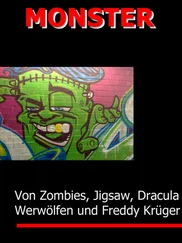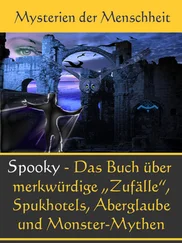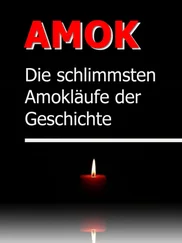“What is it?” I asked. “What’s wrong? I did my sovereign—”
“You’re to leave tonight,” he said, cutting me short.
I frowned at him. “Tonight, sir? But I haven’t—”
“You’ve heard about the trouble up in Memphis?”
“I’ve heard there’s some manner of epidemic making the rounds,” I said, pressing my fingers to my temples. “Pulmonary grippe. Catarrh.”
“Not catarrh,” the Redeemer said, his eyes brighter than before. “Yellowjack.”
“The fever?” I said hollowly.
“The same.”
I watched him for a moment before I spoke. Something in his manner made me circumspect. “They’ve certainly kept it quiet,” I said at last.
“There’s no keeping it quiet any longer, Kansas.” His voice was sedate and teasing, as though withholding the punch-line to a joke. “Eighty-score are dead—; thousands flee the city every hour.” He clucked his tongue against his teeth. He and Parson both made that same sound, usually as a sign of satisfaction. I began to grow skittish in my seat.
“It’s the seventh day of Judgment up there, according to the Colonel,” the Redeemer said finally.
“The Colonel’s in Memphis?”
The Redeemer shook his head, toying with two burnt matches on the table-top. “He left the day before yesterday, after finding his cook face-down in a pan of hopping-john.”
I tried in vain to catch his eye, hoping to guess the joke before he made it. “As good a sign to jump ship as any, I suppose.”
“Black bile and blood-puddles everywhere,” the Redeemer said, still twiddling the matches. “ Rivers of it in the streets.”
I said nothing. My skin was going hot and cold by turns.
“Not everybody’s cleared out, though,” he added playfully.
Blearily, as if through a the bottom of a bottle, I began to see.
“Stacey’s clearing-house, for example, is still open for business. Goodman Harvey’s with old Stacey, managing things on our end.” He scratched his nose. “At present, of course, there isn’t much to manage.”
Goodman Harvey, I thought. Naturally. The only boot-licker in the whole chain of command more eager to please than I was. I knew exactly what the Redeemer wanted of me now. Seeing this, he said nothing more, content to watch me struggle against my better judgment—; the struggle, as always, was a brief one.
“How many?” I asked in a bloodless voice.
He closed his eyes, one after the other, like a tom-cat in a patch of sun. “How many what, dear K?”
“You know damned well, sir. How many niggers.”
He arched his back, cracked his finger-joints against the table, then settled down more comfortably into his chair. He was too content even to chide me for my language. I’d seen him take pleasure in his power over me before, but never with such ruthless, careless coziness. When finally he spoke I learned, in no uncertain terms, just how little I was worth to him.
“Fifty-seven souls,” he said coolly, pushing a dog-eared ledger toward me. I recognized the hand-writing — curlicued, girlish — as Parson’s. Fifty-seven Christian names were listed, each of them male. The list was divided into four columns—: (I) age, (II) weight, (III) disposition, and (IV) marketable skills. A fifth column, labeled “Sold For,” as yet remained blank.
The most I’d ever taken on a single run was seventeen head, and that mostly women. I should have bowed to him politely, walked down to the landing, and dog-paddled all the way to New Orleans.
“Why so many?” I asked. My voice was thick as custard.
“Because we can, Kansas! We can—; and we have the yellowjack to thank for it. It’s the fourth birthday of the Trade, and the fever has given us a present—: enough panic to run a herd of bison through. If Jefferson, or Rush, or even old Baron were still receiving, we’d ship every last darkie off this island tout à fait !” He quieted himself, with an obvious effort, and gave me a sober look. “But Pop Stacey — blast him! — won’t take more than fifty-seven.”
“You’d need seven barges to hold them, sir,” I mumbled, fighting the urge to fall blubbering at his feet. “And seven idiots to run them.”
By way of an answer he held up his fingers for me to look at, cracked them again, then bunched them together into dumplings. He regarded me a moment, brought the dumplings to his mouth, and blew across them once, twice, thrice in quick succession—: then his right hand opened. A ring of worked silver glinted in his palm. A tired trick, of course, but he had need of nothing better. I was already long since brought to heel.
He laid the ring before me on the table. “As it is, though, Kansas, I need only one.”
AND SO THE PUNCH-LINE arrived at last. The Redeemer meant for me to take fifty-seven grown men into a fever town and sell them. I sat up straight, arranged my collar and cravat, then slumped face-down onto the table. I wept in a series of dry-eyed little gasps. It was tantamount to a death-sentence, after all.
“Will I be running them alone?” I said. I saw nothing but the thick green felt covering the table. For some reason its blurry coarseness soothed me.
“I’ve sent across the river for Parson. I don’t expect you’ll require more camaraderie than that.”
“Parson,” I said, grinding my chin into the felt. I’d have preferred to make the run in a butter-churn.
“I’ve explained my scheme to him, of course. He’s given it his blessing.”
“I wouldn’t be surprised if Parson had invented yellow fever.”
The Redeemer smiled at this, indulging me. “A once-in-a-decade’s chance, Kansas. Once in a lifetime, possibly.”
“Once in mine, you mean,” I said. But I said it meekly. The more I learned about the Redeemer’s tricks, the better they seemed to work on me. He was capable of appearing entirely at your mercy, meek and vulnerable as a school-girl—: you pitied him, especially if his plan was flawed, while still trembling at the least thought of his displeasure.
A silence fell—: the silence of the tomb. I stared morosely at the matches the Redeemer had been fiddling with, then all at once noticed that they’d fallen, quite by chance — one straight, one broken — to form an arrow pointing out the door.

For some reason this jarred me from my bedazzlement like a blast of snuff. Memories of yellowjack victims I’d seen, the image of Memphis filling with bloated, black-tongued corpses, and the thought of myself in the thick of it all brought me suddenly to my feet.
“I won’t do it, sir.”
He shook his head at me. “Of course you will, Kansas! You’ve already told me so!”
“ I’ve told you? I don’t follow—”
He covered his right eye, winked at me with the other, and my boldness disappeared like spit into a puddle. I knew what his pantomime meant, of course. My blighted eye had told him.
“What was it?” I said dully, sitting back down. “The star? The yellow cloud?”
The ghost of a grin played about his mouth-corners. “You could say it was the star, I suppose. Better yet, it was all the signs in sequence. Better still, ” he said, his eyes narrowing to two coal-colored slits, “it was everything you’ve done since you stepped off the Vesuvius. And perhaps a bit before.”
My thoughts flew about in a panic, darting from one imaginary betrayal to another, and settled at last on the little Pinkerton I’d met. Quietly, gingerly, I slipped a hand into my coat-pocket, looking for the card Barker had given me.
Читать дальше













